The Canadian Advanced Squad Leader Open
By David Garvin
It was back in May 2019, that the last in-person Canadian Advanced Squad Leader Open (CASLO) was held. That was in Ottawa and it was won by Jean-Pierre Raymond of Québec. The Pandemic ended all in-person play for two years, so the 2020 version, scheduled to be held in Fredericton, New Brunswick, was held virtually instead. 2021’s version was also online, but the prevalence of vaccines and the easing of global restrictions meant that this year would finally see another in-person event. This year, the event was held in the Montréal suburb of Dorval from the 20th to the 22nd of May and was attended by twenty-two players. As it turned out, it was a close-run affair that came down to the final round to determine the winner.
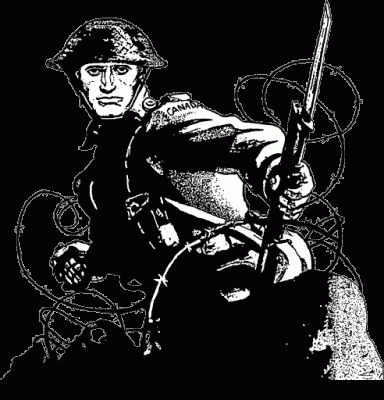
As a bit of a background, the first CASLO took place in 1997 and was due in large part to the efforts of the late Jim McLeod. Jim was an avid ASL player out of Winnipeg and he was the driving force in establishing the Canadian Advanced Squad Leader Association (CASLA). As the story goes, it was in the mid-1990s when some other ASL-playing Winnipeggers posted an advert in a local game shop for other players. Jim picked up the ad and as it turned out, lived a short walk away from where these players had gathered on an almost-weekly basis to play ASL.
It turned out that Jim was a very knowledgeable player whose rules knowledge was far better than that of the group. This only improved everyone’s play, and then the idea of an association was floated so as to get the word out far and wide, allowing for players to meet up and play. Thus, CASLA was born! With the explosion of the internet in the late 1990s membership grew, allowing its members to participate in an annual meeting hosted by an executive that spans the continent; you don’t have to be Canadian to be a member of CASLA!
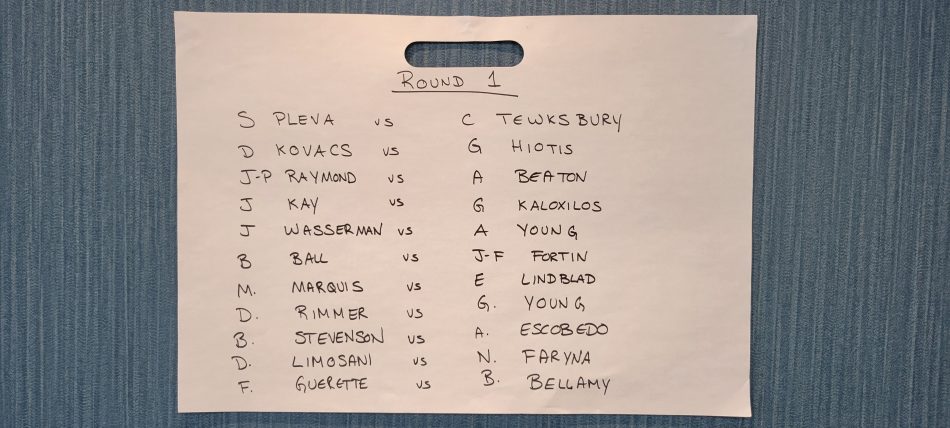
CASLA has a charter that lays out how the annual tournament is to be run and with this in hand, the players were matched up and it was off to the start! This year’s field had two previous champions, the previously-mentioned Jean-Pierre Raymond as well as 5-time winner Darren Kovacs. Darren was there from Canada’s West Coast, and from Canada’s East coast drove up a familiar face, David Garvin. Most players were from Ontario and Quebec, but Winnipeg saw representation in Blake Ball. As well, 4 Americans crossed the border, coming from New England. And with the players gathered from near and far, it was time to raise a glass of twelve-year-old single malt scotch as a toast to the late Jim McLeod and then off to the games!
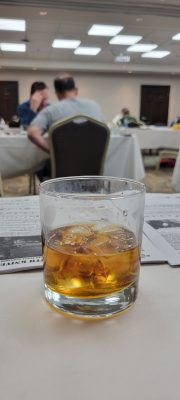
In each of the 5 rounds, players were matched by player rating and then they had a set time to choose the scenario from a list of 5, set up, and play the match to resolution. For the first round, of the 5 scenarios, 3 were chosen in the eleven matchups. The battles ranged from Luxembourg in 1945, to Italy in 1944, and then on to Poland in 1939.
Soon the players were playing, and the sound of dice rattling in their glasses became the background white noise in the room. Only occasionally could the curses be heard as a shot was missed, or perhaps a weapon had malfunctioned, or worse, you had just provoked an enemy sniper attack by hitting your opponent’s Sniper Activation Number (SAN). But no matter the result, spirits in the room remained high as the battles were fought and soon the victors were declared.
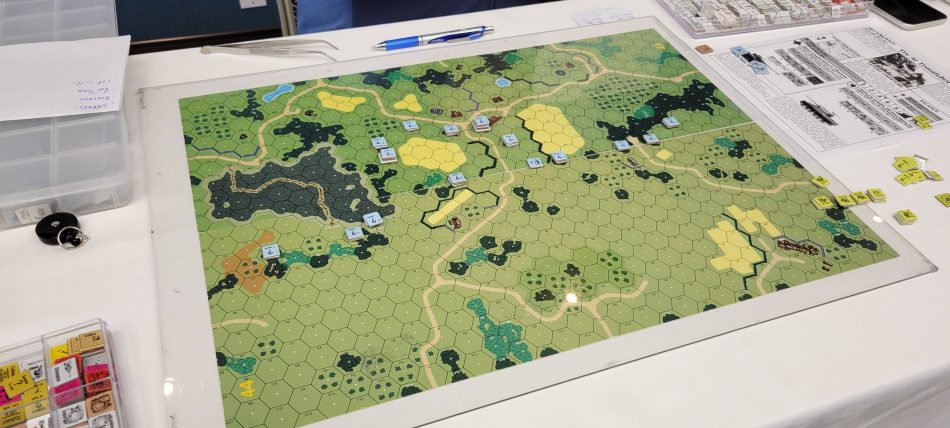
With the round complete, each winner earned his first 10 points for a victory. As the tournament went on, players also earned a bonus point for each victory that their vanquished opponents earned. Since it was possible to have no undefeated players after five full rounds, every point earned was important to determine the winner. Some familiar faces won the opening round, including Darren Kovacs and Jean-Pierre Raymond.
Also, no stranger to anyone who plays ASL, Steve Pleva of Connecticut also won his opener. And for those who don’t play ASL, Steve Pleva is known for many things, especially as the driving force of the New York State Championship. He is also one of the top-rated ASL players as well as the author of many ASL alternate rules, widely adapted and better known as the “Gor-Gor heretical rules”. More on those some other time.
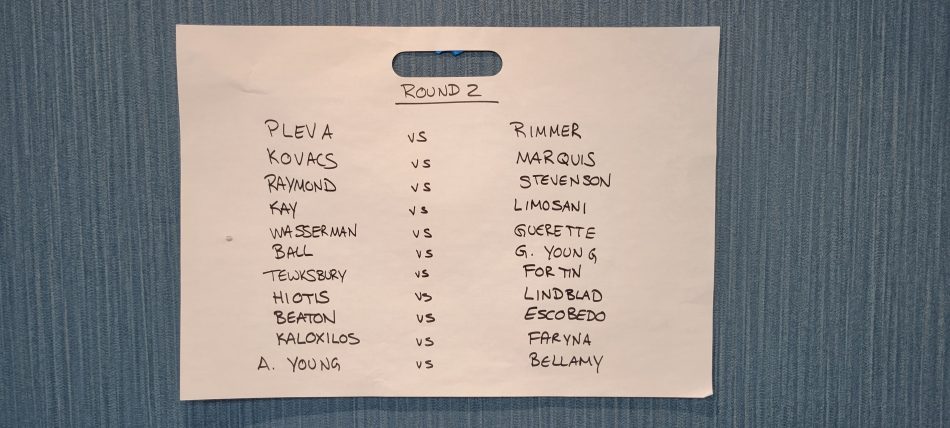
What better way to spend a Friday Night in Montréal than to venture to Finland in the summer of 1944, or to Syria in 1941, or perhaps to the far east at Papitalai Mission, Los Negros Island? Well, one better way would be to go to Hatten, France as the Germans and Americans clashed in early 1945! Thus of the 5 scenarios of the round, 4 were chosen for play.
And as the charter states, the players were matched up by win/loss record. As the tournament progressed, one would see the better players ending up squaring off against one another. Not only that, but the scenarios chosen for play would end up testing the players as they had to ensure they had a good knowledge not only of the rules, but how to get the best of the various nationalities.
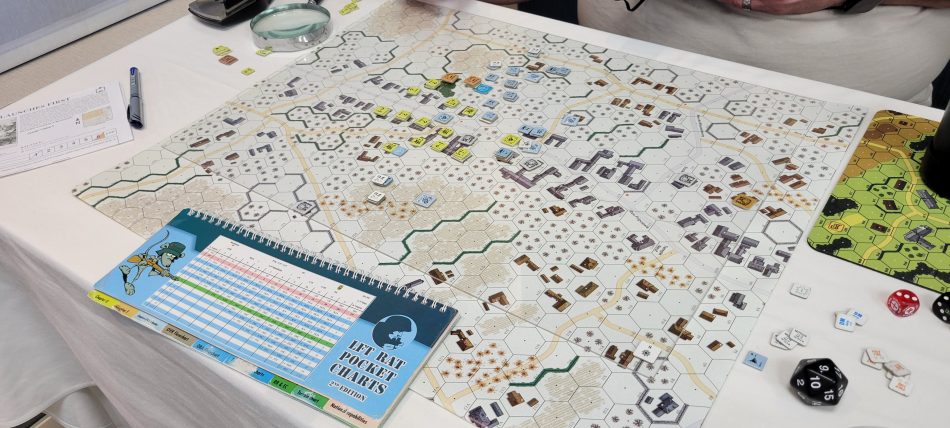
As the day ended, the players retired in order to return for the 3rd round, kicking off Saturday Morning. With 5 rounds over 3 days, an ASL tournament is more like a marathon that separates the casual players from the experienced. That said, the ideal tournament allows for plenty of rest and ample time to complete the matches. The initial Tournament Director, Michael Rodgers of Montréal, selected a very good selection of diverse and fun scenarios. Unfortunately (for us) but maybe fortunately for him, his wife had selected this weekend as time for the couple to travel to Italy.
As such, it was up to me to run the tournament, herding the cats and ensuring all had their matchups. So, with 2 rounds complete, Saturday Morning ended up seeing just 2 of the available scenarios being played. There was a good split between the early war battle between the Germans and the French in Belgium in May 1940, and the Normandy battle of August 1944 as desperate Germans attempting to escape the Falaise Pocket ran into Major David Currie, VC’s force at St. Lambert-sur-Dives.
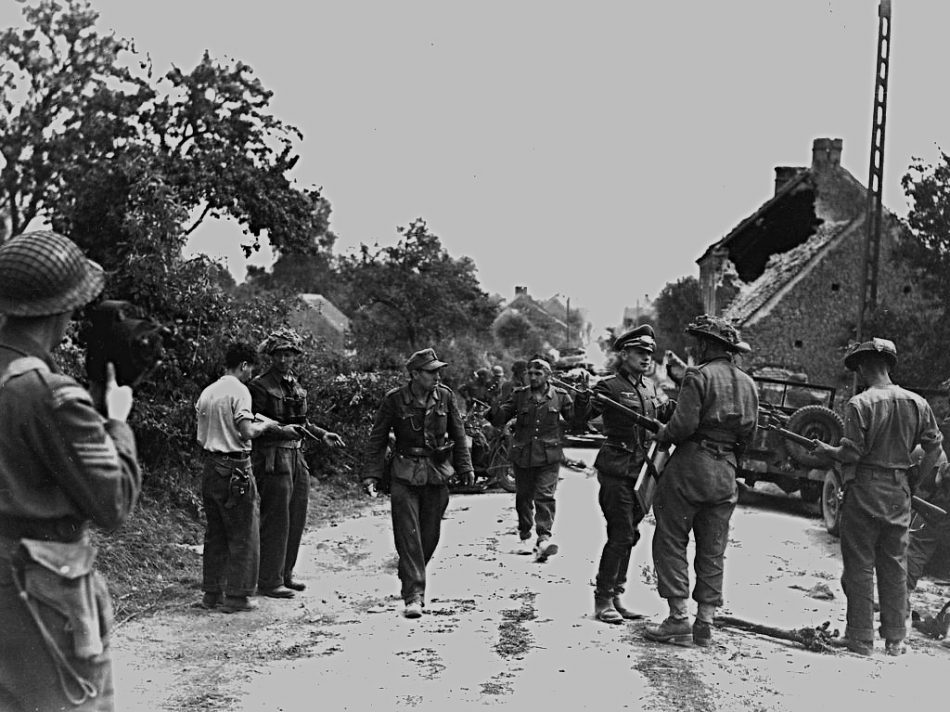
As an aside from the tournament play, this scenario as chosen by Michael is one of the appeals for many players of ASL. Not only are the matches normally toss-up affairs with both sides having a decent chance to win, but also players can recreate historical events that in many cases were turning points or at least key events in the war. From the jungles of the far East to the deserts of Africa and to the frozen tundra of the North, players can square off in battles about which they had probably read in school. Alas, back to the tournament!
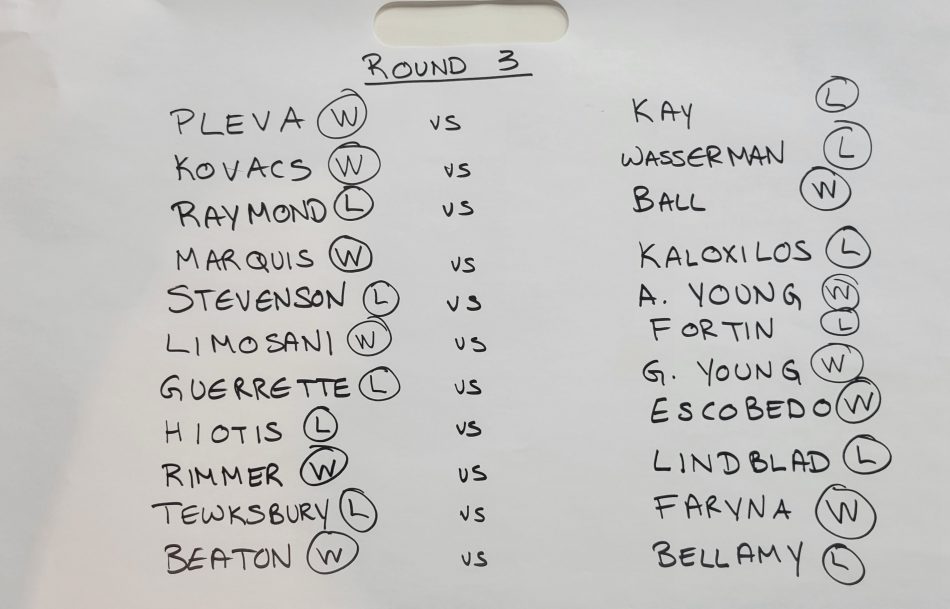
After 3 full rounds, it was clear that a classic ending was in the offing. Pleva and Kovacs remained undefeated as Jean-Pierre Raymond suffered his first defeat of the tournament, this time to Blake Ball of Winnipeg. This meant that for the 4th round, there were 3 undefeated players. Steve was matched against Jean-Pierre as Darren and Blake squared off. Steve and Jean-Pierre battled at Ortona in Italy, in 1943, playing “Born Again”, a scenario by 3rd party producer Hazardous Movement. Blake and Darren chose to fight it out in Krasne, Poland in Bounding Fire Production’s scenario “Iron Greeting”. As it turned out, Steve emerged victorious again and Blake edged out former champion Darren to set up the final champion match to be run Sunday morning.
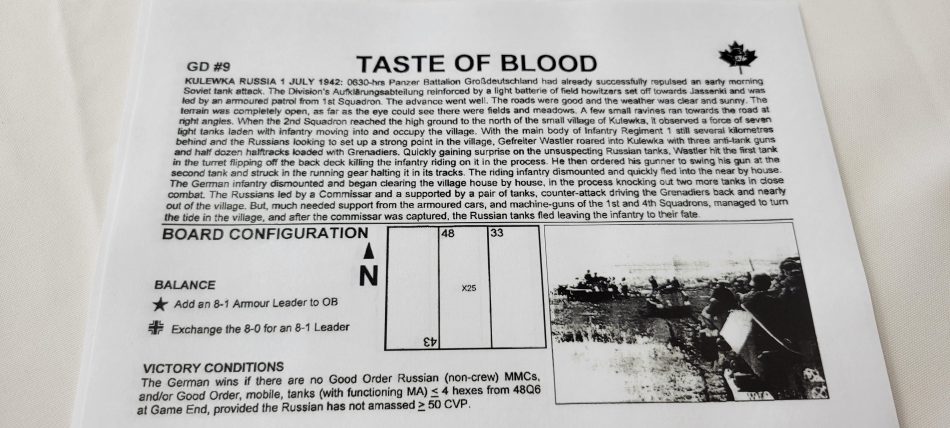
Taste of Blood by Lone Canuck Publishing was chosen for the final scenario. Set in July, 1942, this battle pitted the Grossdeutschland Division against Soviet forces near Kulewka, USSR. Two other pairings also ended up playing this scenario as well. Steve and Blake battled back and forth over this one but in the end, it was Steve who ended up victorious. As such, Steve ended up finishing with a perfect 5-0 record.
At the end, Blake and Darren both had 4-1 records, and thanks to the previously-mentioned bonus points, Blake narrowly edged out Darren, fifty-one points to fifty. This meant that Blake earned forty points through his 4 victories and that all of his opponents whom he defeated collectively won eleven matches. Unfortunately for Darren, his defeated opponents only won 10 times. And with that, the 26th annual Canadian ASL Open concluded. The prizes were handed out and the players went their respective ways.
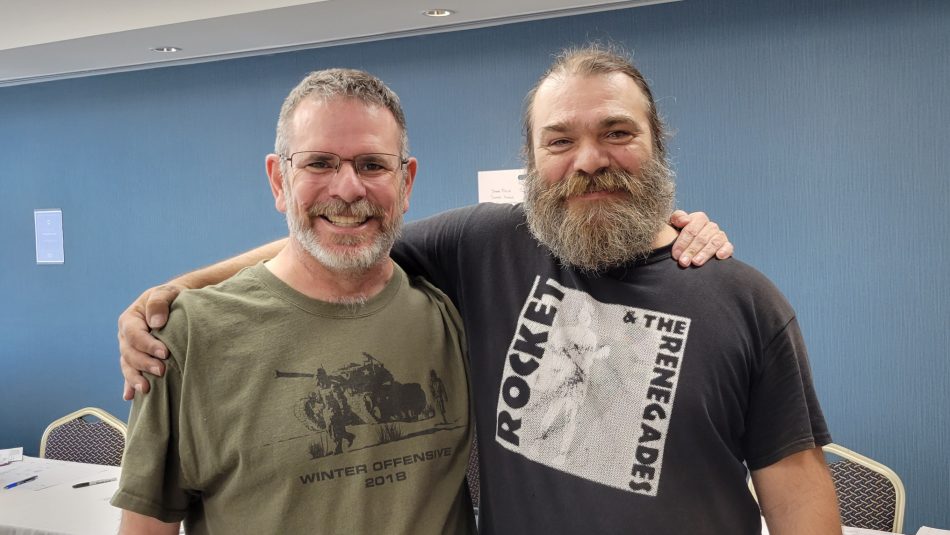
At the end of the day, however, we don’t play to get our name engraved on the plaque or to win prizes, though that part is fun. The real reason we do play is because of enduring friendships. As fate would have it, fellow ASL Player George Kaloxilos of Hamilton, Ontario used to work with my best friend Gary, who happened to introduce me to Squad Leader way back in the 1980s. George and I have become friends and I was so glad to see that he could make it to Montréal for CASLO 2022.
I also got to see some classic ASL play between some of the best players around. And so, with that, thus ends my comments on CASLO for this year. It was a pleasure running the tournament, and stepping in for Michael. He really is the hero for this year, having done all the behind-the-scenes work to get things running. And in the end, it was well-attended, the venue was perfect and a grand time was had by all.
David Garvin is an ASL player, living in Nova Scotia, Canada.

Great review David !!!
Thank you!
Really enjoyed reading this retrospective, David. Thanks!
Thanks, Chuck! Appreciate the feedback!